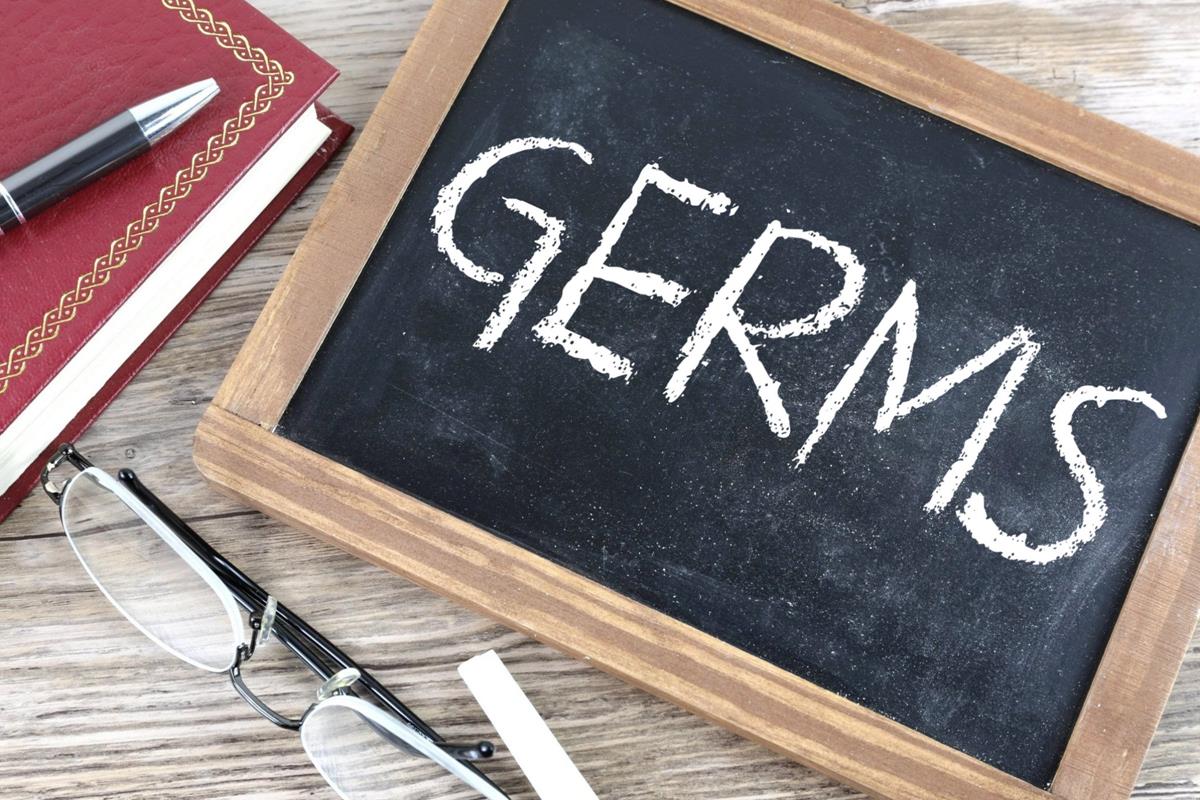Germs and Personal Hygiene and Traditional Preventive Medication

Germs are tiny organisms that can cause diseases or benefit your health. Germs are microorganisms. This means that they can be seen only through a microscope. They can be found everywhere – in the air, soil, and water. There are also germs on your skin and in your body. Many germs live in and on our bodies without causing harm. Some even help us to stay healthy. But some germs can make you sick. Infectious diseases are diseases that are caused by germs.
Types of Germs
Here are the main types of germs:
- Bacteria: Single-celled organisms that can live inside or outside the body. Some bacteria cause infections like sore throats or pneumonia, while others are beneficial and help with digestion.
- Viruses: Tiny agents that need living cells to reproduce. They cause diseases like the flu and chickenpox.
- Fungi: Plant-like organisms that get nutrition from other living things, causing conditions like athlete’s foot.
- Protozoa: Single-celled organisms that thrive in moisture and can spread diseases through water.
- Helminths: Parasitic worms that can live inside the human body and cause diseases.
These germs are found everywhere and can affect plants, animals, and humans. While some are harmful, others play essential roles in maintaining health and balance in our ecosystems.
Causes of Germs
Germs are caused by different types of microorganisms, including bacteria, viruses, fungi, and parasites. Here are some common ways these germs can cause infections:
- Bacteria: Can enter your body through a cut on your skin, contaminated food or water, or breathing in droplets from an infected person.
- Viruses: Often spread through direct contact with an infected person, through the air via sneezes or coughs, or by touching contaminated surfaces.
- Fungi: Can cause infections when you come into contact with fungal spores in the environment, which can be inhaled or land on the skin.
- Parasites: Typically transmitted through contaminated food, water, or bites from insects like mosquitoes.
Maintaining good hygiene and taking preventive measures like vaccinations can help reduce the risk of infections caused by these germs.
How are germs contacted?
Germs and Hygiene
Hygiene plays a crucial role in controlling germs and preventing diseases. Here are some key points about the importance of hygiene:
- Handwashing: Regular handwashing with soap and water can reduce deaths from diarrheal diseases by up to 50% and prevent a million deaths a year.
- Face and Body Hygiene: Proper hygiene, like showering before swimming, helps prevent the spread of germs and diseases like trachoma, the leading cause of preventable blindness.
- Food Safety: Handwashing can reduce the risk of foodborne illnesses and other infections, as a large percentage of these outbreaks are spread by contaminated hands.
- Community Health: Handwashing education in communities can significantly reduce illnesses and absenteeism due to gastrointestinal issues in schoolchildren.
- When you have to cough or sneeze, cover your mouth and nose with a tissue or use the inside of your elbow
- Wash your hands well and often. You should scrub them for at least 20 seconds. It is important to do this when you are most likely to get and spread germs:
- Before, during, and after preparing food
- Before eating food
- Before and after caring for someone at home who is sick with vomiting or diarrhea
- Before and after treating a cut or wound
- After using the toilet
- After changing diapers or cleaning up a child who has used the toilet
- After blowing your nose, coughing, or sneezing
- After touching an animal, animal feed, or animal waste
- After handling pet food or pet treats
- After touching garbage
- If soap and water are not available, you can use an alcohol-based hand sanitiser that contains at least 60% alcohol
- Stay home if you are sick
- Avoid close contact with people who are sick
Maintaining good hygiene is essential for personal health and public safety, as it stops the spread of infectious diseases.
Traditional Herbal Medication for Germs Prevention
Herbal medications can be used to help prevent infections by boosting the immune system or providing antiviral properties. Here are some herbs known for their potential to prevent germs:
- Oregano: Known for its antiviral properties, particularly against stomach flu and respiratory infections.
- Sage: Traditionally used to treat viral infections and may inhibit HIV activity.
- Basil: Including sweet and holy varieties, may fight herpes viruses and hepatitis B.
- Fennel: Exhibits strong antiviral effects against herpes viruses and respiratory infections in cattle.
- Elderberry: Popular for its antiviral properties, especially for early signs of the flu.
- Turmeric: Contains curcumin, which has been used in integrative medicine for its antiviral properties.
It’s important to consult with a healthcare provider before starting any herbal treatment, as herbs can interact with other medications and may not be suitable for everyone. Additionally, while these herbs have shown potential in studies, more research is needed to fully understand their effectiveness and proper dosages for preventing infections.
Organizations focused on germs
Organizations focused on germs and related health issues play a vital role in global public health. Here are a couple of key organizations:
- World Health Organization (WHO): Leads global efforts in infection prevention and control (IPC), providing guidelines and resources to prevent avoidable infections among patients and health workers.
- Centres for Disease Control and Prevention (CDC): A U.S. federal agency that conducts research and provides information on infectious diseases, including those caused by germs.
These organizations work to address challenges such as antimicrobial resistance (AMR) and provide guidance on best practices for hygiene and disease prevention to improve health outcomes worldwide. They also engage in research, policy-making, and education to combat the spread of infections.
External links
Organizations on germs
How are germs contacted?

